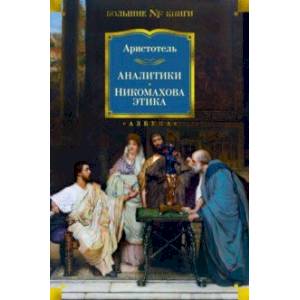Analytics. Nicomachean Ethics
Please sign in so that we can notify you about a reply
Aristotle was one of the greatest thinkers of antiquity, a student of Plato and the tutor of Alexander the Great. He synthesized the experience of the classical era of ancient Greek philosophy in his works and had a huge influence on the development of European and world culture. He was a polymath, standing at the origins of modern science. Aristotle developed one of the first universal models of the universe and a comprehensive system of scientific knowledge, covering various aspects of human life. He outlined a circle of concepts and introduced terminology that is still used in the philosophical lexicon and largely defines the guidelines and horizons of modern scientific thinking. The publication includes the most important logical treatises of Aristotle, comprising the "Organon" ("Categories," the first and second "Analytics," "On Interpretation," and others), as well as "Nicomachean Ethics," a treatise addressing moral issues where the philosopher poses and thoroughly analyzes the most important questions of human existence: what is good, happiness, and justice? Additionally, the book includes "Physics," a fundamental treatise by Aristotle that serves as an introduction to all his other natural-scientific works, including those that are now classified under biology and psychology. Aristotle's "Physics" has little in common with the science known as physics today; nevertheless, this treatise is still considered one of the highest achievements of human thought in the field of natural science.
Author:
Author:Aristotle
Cover:
Cover:hardcover
Category:
- Category:History & Geography
- Category:Psychology
Dimensions:
Dimensions:21.5x14.5x3.5 cm
Series:
Series:Non-Fiction. Big Books
ISBN:
ISBN:978-5-389-24103-9
No reviews found
